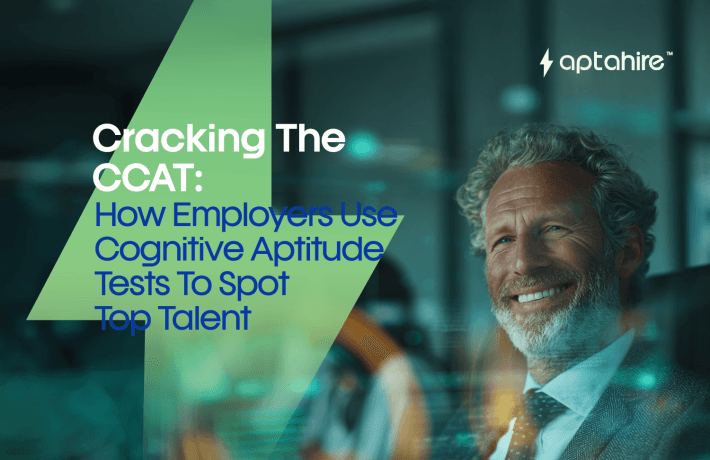Play to Get Hired: The Rise of Gamified Assessments in Modern Recruitment

Remember when job applications meant filling out endless forms, uploading resumes, and waiting nervously for a callback? Those days are fading fast. Recruitment is being reimagined, and it’s not with boring multiple-choice tests or stiff face-to-face interrogations, it’s with games.
Yes, you read that right. Companies across the globe are turning hiring into a game. Instead of ticking boxes, candidates are now solving puzzles, navigating virtual scenarios, and playing digital challenges that reveal their true skills and personality in ways a resume never could.
It’s called gamified assessments, and it’s quickly becoming the future of modern recruitment.
Why Games in Hiring?
Think about it: when people play games, they show their real behavior.
- Are they calm under pressure?
- Do they take risks or play it safe?
- Do they collaborate or try to win alone?
- Can they think strategically when the clock is ticking?
These qualities are gold for recruiters, but they don’t shine through on paper or in standard interviews. Gamified assessments allow companies to see how candidates think, act, and adapt in real-world-like challenges, while also making the process more fun.
It’s hiring that feels less like a test, and more like an adventure.
How Do Gamified Assessments Work?
Gamified recruitment can take many forms, depending on the role and industry:
- Puzzle and Logic Games – Test problem-solving, analytical reasoning, and persistence.
- Situational Simulations – Drop candidates into workplace-like scenarios where they must make decisions under pressure.
- Cognitive Skill Games – Assess memory, attention span, and multi-tasking ability.
- Role-Playing Games (RPGs) – Evaluate leadership, communication, and adaptability in team settings.
- Virtual Reality Assessments – Immersive experiences that mimic real job environments, from piloting planes to handling retail customers.
For example, a tech company might ask candidates to debug code inside a gamified platform. A retail giant could create a simulation where applicants “serve” virtual customers and resolve complaints. A consulting firm might throw a business puzzle at candidates with limited time to find a solution.
Benefits for Recruiters
1. Deeper Insight into Personality
Gamified assessments reveal traits like creativity, resilience, and teamwork, traits that are often invisible in interviews.
2. Reduced Bias
Since everyone plays the same game under the same rules, decisions are based on performance rather than appearance, background, or resume polish.
3. Engaging Candidate Experience
Job hunting is stressful, but when the process feels like a challenge or quest, candidates are more relaxed, and often more authentic.
4. Scalability
Hundreds (or even thousands) of applicants can take part simultaneously, and results are instantly available to recruiters.
5. Employer Branding
Companies that use gamified recruitment send a clear message: we’re modern, innovative, and we care about making hiring exciting. That alone attracts top young talent.
Why Candidates Love It
For job seekers, gamified hiring feels less intimidating. Instead of memorizing “right” answers or stressing over tricky interview questions, they get to:
- Showcase natural skills through gameplay.
- Prove creativity and adaptability instead of reciting rehearsed lines.
- Enjoy the process (yes, applying for jobs can actually be fun).
Gamification also gives candidates a sense of fairness, since results are based on how they play rather than who they know.
Real-World Examples
- Unilever uses gamified assessments to evaluate thousands of graduates every year, analyzing how they solve puzzles and navigate virtual challenges.
- Deloitte built leadership simulations as games to identify potential managers.
- PwC Hungary created a game where candidates solve real business problems, improving engagement and reducing dropout rates.
These companies aren’t just hiring smarter, they’re building reputations as forward-thinking employers.
Challenges and Considerations
Of course, gamified hiring isn’t perfect. Some concerns include:
- Accessibility: Candidates without gaming familiarity might feel disadvantaged.
- Over-Reliance on Games: Not all roles require the skills a game tests.
- Cost of Implementation: High-quality platforms (especially VR) can be expensive.
To be successful, gamified assessments need to be designed responsibly, aligned with job requirements, inclusive for diverse applicants, and used as one tool among many in the recruitment process.
The Future of Gamified Recruitment
As technology advances, we’ll see even more immersive assessments:
- AI-driven adaptive games that change in difficulty based on candidate responses.
- Virtual reality job previews that let candidates “try before they apply.”
- Global gaming tournaments where companies spot top talent across borders.
The line between “playing a game” and “applying for a job” will blur, and candidates won’t just be competing for points, they’ll be competing for careers.
Final Thoughts
Hiring doesn’t have to be boring, or biased. With gamified assessments, recruitment transforms into an engaging, data-driven, and surprisingly enjoyable process.
For recruiters, it means sharper insights, reduced hiring mistakes, and stronger teams. For candidates, it means being judged on how they think, act, and solve problems, not just on the lines of their résumé.
In the end, gamified hiring proves one simple truth: sometimes, the best way to see how someone works is to see how they play.
Play to get hired, the future of recruitment is already here.
FAQs
1. What are gamified assessments in recruitment?
Gamified assessments are hiring tools that use game-like elements, such as challenges, puzzles, or simulations, to evaluate candidates’ skills, problem-solving abilities, and personality traits in an engaging way.
2. How do gamified assessments differ from traditional tests?
Unlike traditional aptitude or written tests, gamified assessments are interactive, fun, and designed to mimic real-world scenarios. They measure the same skills but in a way that feels less stressful and more engaging for candidates.
3. Why are companies using gamified recruitment methods?
Companies use gamified assessments to attract top talent, reduce hiring bias, and improve candidate experience. It also helps them see how candidates think, react, and perform in realistic job-related challenges.
4. Do gamified assessments actually improve hiring accuracy?
Yes. Research shows that gamified tests can improve predictive validity by revealing cognitive, behavioral, and emotional traits that might not show up in resumes or traditional interviews.
5. What kinds of skills can gamified assessments measure?
They can measure cognitive skills (like logical reasoning and memory), soft skills (like communication and teamwork), and even behavioral traits (like risk-taking, creativity, and resilience).
6. Are gamified assessments fair to all candidates?
When designed well, yes. They provide equal opportunities for candidates to showcase abilities beyond written answers, making hiring more inclusive and reducing unconscious bias.
7. Do candidates need to be gamers to succeed in gamified hiring tests?
Not at all. These assessments are designed for all candidates, regardless of gaming experience. The focus is on decision-making, adaptability, and skills, not gaming expertise.
8. Can gamified assessments be customized for different job roles?
Absolutely. Organizations can tailor challenges to reflect specific job functions, whether it’s problem-solving for tech roles, communication for customer service, or leadership simulations for managers.
9. What are the benefits of gamified recruitment for candidates?
Candidates find the process more enjoyable, less stressful, and more transparent. It gives them a chance to demonstrate their strengths in action rather than only on paper.
10. What are some examples of gamified recruitment in real companies?
Companies like Unilever, PwC, and Deloitte have adopted gamified assessments in their hiring processes, using games and simulations to evaluate everything from cognitive ability to cultural fit.



